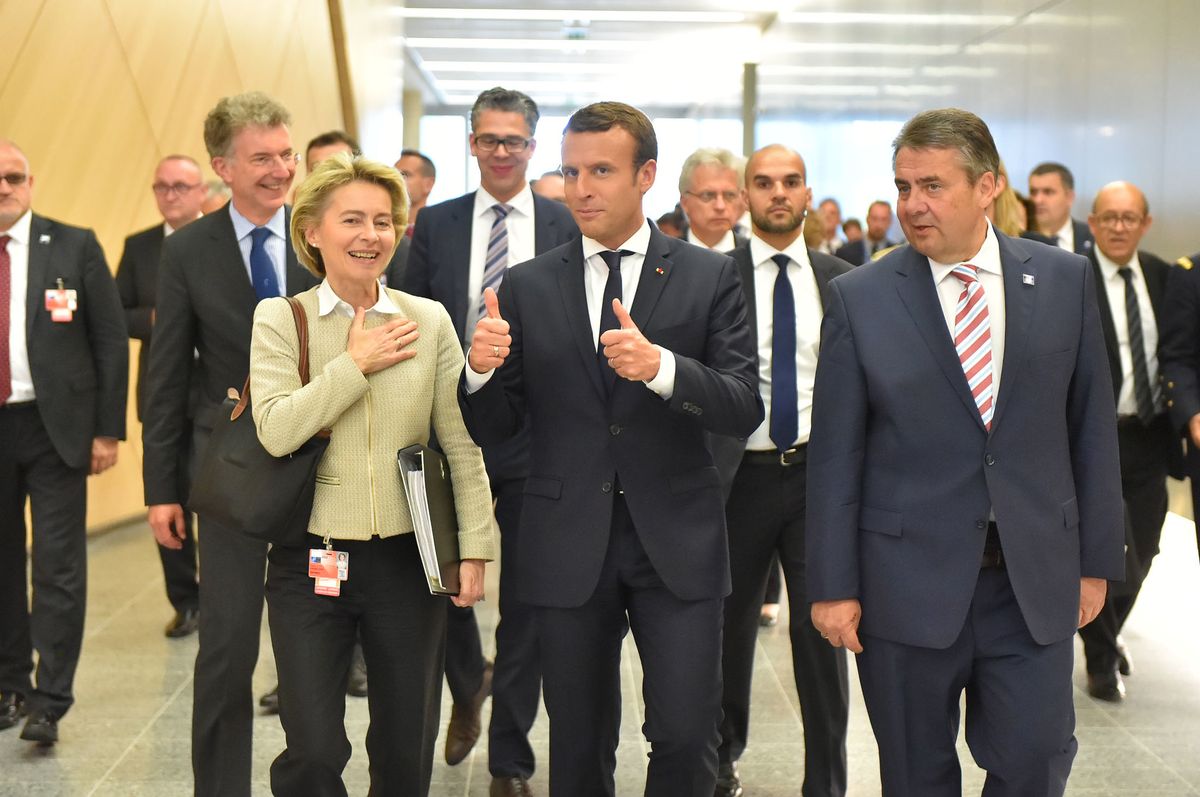EU and French Leaders Discuss Economic Future with Chinese President in Beijing Meeting

The Lede: At a trilateral meeting between Chinese President Xi Jinping, French President Emmanuel Macron, and European Commission President Ursula von der Leyen in Beijing, the leaders discussed trade relations against the backdrop of geopolitical tensions.
What We Know:
- Von der Leyen continued her assertive tone on China and warned of the risks and critical imbalances in the EU-China economic relationship. She told reporters after the meeting that she had called for the resumption of economic dialogue, acknowledging that ‘decoupling from China’ was not a viable or desirable strategy.
- The Comprehensive Agreement on Investment (CAI) was not discussed. The proposed investment deal, which has been in the works since 2013, would open barriers to China’s internal market to EU companies. Von der Leyen stated that the EU's position on the matter has not changed.
- Macron traveled to China with a large delegation of French business leaders, artists, and museum officials. They included top executives from plane manufacturer Airbus Group, luxury group LVMH, and nuclear energy producer Électricité de France (EDF). After Macron’s meeting with Xi ended, Airbus announced it would be opening a second final assembly line in China at its Tianjin site, allowing the aircraft manufacturer to double its production capacity in the country.
- The EU leaders also reiterated their positions on the role of China in the Russia-Ukraine War and the rising tensions surrounding Taiwan.
The Background: Negotiations on the CAI stalled in 2021 due to Chinese sanctions on EU politicians, controversies about human rights in China, and U.S. opposition. Over the deal negotiations, China agreed to eliminate joint venture requirements, forced transfer of technologies, equity caps, and quantitative restrictions in a number of sectors where EU businesses in China operate while protecting European FDI in the country. China was the EU's third-largest partner for 2022 in terms of the export of goods and the largest in terms of imports. Von der Leyen puts the value of the EU-China trade volume at €2.3 billion ($2.51 billion) per day.
Likely Outcomes:
- The EU’s alignment with the U.S. on the issues in Ukraine and Taiwan remains a major stumbling block to smoothing out relations with China. If the geopolitical considerations and relationship with the U.S. outweigh their trade relations with China, EU leaders may sacrifice some of the latter or try to use economic relations as leverage. However, European businesses still view China as a lucrative opportunity and while politicians view trade and business ties to China as critical to the European economy. Therefore, both sides are interested in avoiding major changes and breaks in economic relations.
- China’s main rivalry is with the U.S. and the EU’s close trans-Atlantic relations could be used as a pressure point in the future. China may offer increasingly enticing trade conditions or political concessions to pull the EU and its countries away from the U.S. or do the opposite to punish their compliance with American interests. This may lead to disagreements across the Atlantic and between EU member states just as the Russia-Ukraine War has tested these ties.
Quotables:
"Over the last ten years, the European Union's trade deficit has more than tripled. It reached almost €400 billion last year. We discussed that because this trajectory is not sustainable and the underlying structural issues need to be addressed.” – Ursula von der Leyen, President of the EU Commission
"I think the real concern on the Chinese side is precisely that Europe will take a view of China, that given the security and political developments that Europe is seeing, that it will impose a set of tightened restrictions when it comes particularly to technology access, which I think China's counted on being able to continue to acquire from Europe.” – Andrew Small, a senior transatlantic fellow with the Asia program at the German Marshall Fund of the United States
Good Reads:
Can Macron and von der Leyen smooth EU-China relations? (DW)
Macron and von der Leyen in push to improve EU-China relations (Euronews)
Macron counting on Xi to 'bring Russia to senses' (BBC)
European Commission signals game over for China investment deal (Politico)
